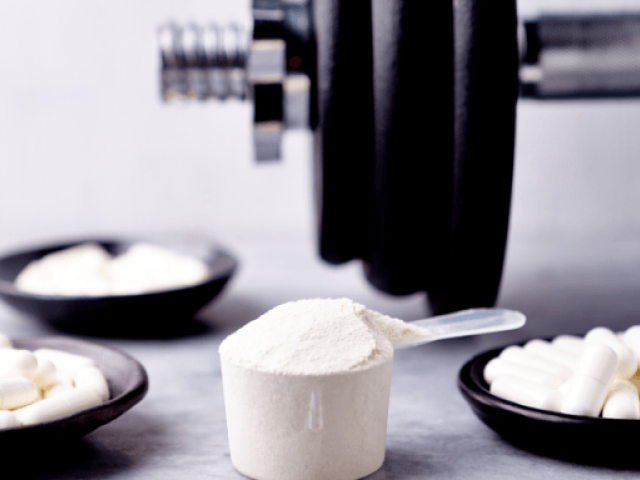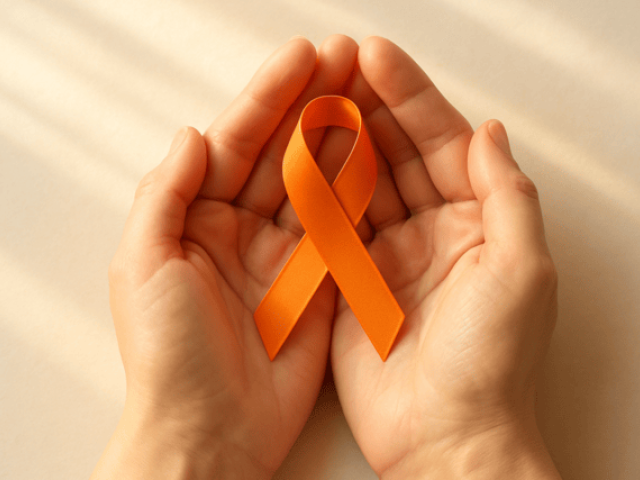
What to Know About Creatine and Sexual Health
You’ve probably heard conflicting stories about creatine and sexual health. Some people claim this popular supplement harms sexual function, while others say it has no effect at all.
Let’s cut through the confusion with science-backed facts. The real connection between creatine and sexual health is much simpler than you might think.
Key Takeaways
- Research shows creatine does not cause erectile dysfunction or harm sexual function
- Studies find no negative effects on libido, testosterone levels, or fertility
- Creatine may actually support reproductive health through cellular energy metabolism
- The supplement is safe for both men and women without sexual health concerns
Does Creatine Affect Sexual Function?

Research shows that creatine does not directly harm sexual function or performance. Multiple clinical studies have examined this relationship. They found no negative effects.
The confusion often comes from people mixing up creatine with anabolic steroids. While steroids can suppress testosterone and cause sexual problems, creatine works through completely different pathways.
Your body naturally produces creatine and you get it from foods like meat and fish. The supplement form simply helps increase your muscle stores of this compound.
How Creatine Works in the Body

Creatine serves as a rapid energy source for your muscles and brain. When you need quick bursts of power, creatine helps regenerate ATP (adenosine triphosphate), your body’s primary energy currency.
This process happens within seconds during high-intensity activities. Whether you’re lifting weights or thinking hard, creatine provides the energy your cells need to function optimally.
The supplement doesn’t directly interact with sexual hormones or reproductive organs. Instead, it focuses on cellular energy production throughout your body.
Understanding Cellular Energy Production
Better cellular energy can indirectly support many bodily functions. When your cells have adequate energy, they perform their jobs more efficiently.
This improved cellular function may contribute to better overall health. It includes cardiovascular wellness that supports healthy blood flow.
Can Creatine Cause Erectile Dysfunction?

No scientific evidence supports claims that creatine can cause erectile dysfunction. Clinical trials examining creatine’s safety profile have found no link between the supplement and erectile problems.1
Studies monitoring athletes taking creatine for extended periods report no adverse effects on sexual function. In fact, research specifically designed to test sexual health parameters shows creatine is generally safe in this regard.
The myth linking creatine to erectile dysfunction likely stems from confusion with other substances. Some people mistakenly believe creatine works like anabolic steroids, which can indeed cause sexual problems.
Clinical Research on Erectile Function
A review of studies found no evidence that creatine negatively impacts erectile function.2
Scientists have looked at both short-term and long-term creatine use. Neither duration of supplementation showed any connection to erectile problems.
Effects of Creatine on Sexual Performance

While creatine doesn’t directly boost sexual performance, it may offer some indirect benefits. Better physical fitness and energy levels can positively impact your overall confidence and stamina.
Creatine’s primary effects include improved muscle strength, power output, and exercise recovery. These benefits can translate to better overall physical health and athletic performance.
Some users report feeling more energetic and confident after starting creatine supplementation. This increased vitality might indirectly support a healthy sex life.
Connection to Cardiovascular Health
Creatine can improve exercise performance, which supports cardiovascular fitness. Since healthy blood flow is needed for proper erectile function, better cardiovascular health could theoretically benefit sexual performance.
Regular exercise supported by creatine use may help maintain the vascular health needed for sexual function. This represents an indirect rather than direct benefit.3
Benefits of Creatine for Overall Health
Creatine is one of the most researched supplements available. It has benefits extending beyond muscle building. Studies show it may support brain function, reduce mental fatigue, and improve cognitive performance.
Research suggests creatine may help reduce symptoms of depression and cognitive fatigue.4 Mental health impacts sexual desire and function. These mood benefits could indirectly support sexual well-being.
The supplement also supports muscle growth and better body composition. Better physical fitness and body image can boost self-confidence. This positively affects sexual satisfaction.
Bonus Read: Want to learn more about creatine’s cognitive benefits? Research shows this supplement can support brain health in multiple ways.
Creatine Benefits Summary
| Creatine Benefits | Potential Sexual Health Impact |
|---|---|
| Improved energy levels | May increase overall vitality |
| Better exercise performance | Supports cardiovascular health |
| Enhanced mood | Could support healthy libido |
| Increased muscle mass | May boost confidence |
Should You Take Creatine for Sexual Health?

While you shouldn’t take creatine specifically for sexual health benefits, it won’t harm your sexual function either. The supplement’s primary benefits relate to muscle performance and cognitive function.
If you’re interested in creatine for its proven benefits like increased strength and power, you can use creatine without worrying about negative sexual effects. Creatine is generally safe for both men and women.
For targeted sexual health support, focus on proven strategies like regular exercise, stress management, and maintaining a healthy lifestyle. Creatine can be part of an active lifestyle that supports overall wellness.
Choosing Quality Creatine Supplement Options
When selecting a creatine supplement, quality matters. Creatine monohydrate is the most studied and effective form of creatine available.
Looking for superior cellular energy support? Jinfiniti’s Creatine + ATP combines 4g of creatine monohydrate with 400mg of disodium ATP. This pharmaceutical-grade formula supports both physical and mental performance. Best of all, it won’t affect your sexual health.
Side Effects of Creatine to Consider

The side effects of creatine are minimal and well-documented. The most common effect is temporary water retention during the first few days of use.
Some people experience mild digestive upset if they take large doses on an empty stomach. Starting with smaller amounts and taking creatine with food can minimize this issue.
Studies examining creatine use for up to 5 years at doses up to 30 grams daily have found no significant adverse effects. Sexual dysfunction is not among the reported side effects.5
Safety for Different Groups
Women can safely use creatine without concerns about sexual or reproductive health. Research on creatine in women shows no adverse effects on hormonal or sexual function.
Older adults can also use creatine safely. The supplement may be particularly beneficial for maintaining muscle mass and cognitive function with aging.
The Relationship Between Creatine and Hormones

Most research indicates that creatine does not significantly increase testosterone levels. A review of 13 studies found mixed results. Most showed no meaningful hormonal changes.
One widely-cited 2009 study reported increased DHT (dihydrotestosterone) levels.6 However, this finding hasn’t been consistently replicated in subsequent research.
A recent 2025 study specifically designed to test creatine’s effects on DHT found no significant differences between creatine and placebo groups.7 The current evidence suggests creatine is unlikely to meaningfully affect hormone levels.
Creatine and Testosterone Connection
Since creatine doesn’t significantly impact testosterone production, it won’t cause the hormonal disruption associated with sexual dysfunction. This differentiates it from anabolic steroids, which can suppress natural testosterone production.
Men with normal testosterone levels who use creatine can expect their hormone levels to remain stable. This hormonal stability supports normal sexual function.
What Research Says About Creatine and Sex Drive

Scientific studies have found no evidence that creatine negatively affects sex drive or sexual desire. The research shows that sexual function remains normal during creatine supplementation.
Some users report increased energy and improved mood while taking creatine. These positive effects could theoretically support a healthy libido. However, this represents an indirect rather than a direct benefit.
The link between creatine and reduced libido appears to be purely anecdotal. No controlled studies have documented this effect.
Energy and Sexual Wellness
Sexual health involves multiple factors. These include energy levels, mood, and overall physical health. While creatine may support some of these areas indirectly, it’s not a targeted sexual health supplement.
Want to support cellular energy at a deeper level? Jinfiniti’s Vitality↑® NAD+ Booster targets energy production in your mitochondria. This approach to cellular health may provide broader benefits for overall vitality and wellness.
Creatine’s Role in Sexual Health
Interestingly, research suggests creatine may actually support reproductive health. Studies show that creatine plays important roles in sperm energy metabolism and female reproductive physiology.
Research on male fertility found that men taking creatine supplements had higher sperm concentration and total sperm count compared to non-users.8 This suggests creatine may support male fertility.
Female Reproductive Health
Creatine plays important roles in female reproductive physiology. This includes energy metabolism in the uterus and ovaries. The compound’s levels naturally fluctuate throughout the menstrual cycle.
Research indicates that creatine metabolism is important for successful fertilization and reproductive health in women.9 This evidence contradicts concerns about creatine harming female fertility.
How Creatine May Indirectly Help Sexual Function

While creatine doesn’t directly improve sexual performance, several indirect pathways could provide benefits. Better physical fitness, supported by creatine use, can improve overall health and confidence.
Athletic performance improvements from creatine may translate to better cardiovascular health. Since blood flow is needed for sexual function, improved cardiovascular fitness could theoretically support sexual health.
The mood and cognitive benefits of creatine might also indirectly support sexual wellness. Better mental health and reduced fatigue can positively impact sexual desire and satisfaction.
Common Myths About Creatine Use

Many myths persist about creatine and sexual health. Separating fact from fiction can help you make informed decisions about supplementation.
Myth: Creatine causes erectile dysfunction
Reality: No scientific evidence supports this claim
Myth: Creatine reduces libido
Reality: Studies show no negative effects on sex drive
Myth: Creatine harms fertility
Reality: Research suggests creatine may actually support reproductive health
Myth: Creatine works like steroids
Reality: Creatine is a natural substance with completely different mechanisms
Understanding the Facts
The disconnect between myths and reality often comes from misinformation online. Social media and forums can spread unverified claims about supplements.
Always look for peer-reviewed research when evaluating supplement safety. Scientific studies provide the most reliable information about potential benefits and risks.
The Final Scoop
The scientific evidence shows that creatine supplementation is safe and doesn’t negatively impact sexual health. In fact, emerging research suggests it may support reproductive health through its role in cellular energy.
If you’re considering creatine for its proven benefits like increased strength, power, and cognitive function, sexual health concerns shouldn’t stop you. The supplement has an excellent safety profile across multiple health parameters.
For those with specific health conditions, consulting with healthcare providers before starting any new supplement remains wise. However, sexual dysfunction is not a documented risk of creatine supplementation.
Quality matters when choosing supplements. Jinfiniti’s Creatine + ATP provides pharmaceutical-grade creatine monohydrate with added ATP for superior cellular energy support, backed by rigorous testing and quality standards.
Referenced Sources:
- https://pmc.ncbi.nlm.nih.gov/articles/PMC5469049/ ↩︎
- https://www.tandfonline.com/doi/full/10.1186/s12970-021-00412-w ↩︎
- https://www.sciencedirect.com/science/article/abs/pii/S2405457724002146 ↩︎
- https://pmc.ncbi.nlm.nih.gov/articles/PMC8348220/ ↩︎
- https://www.tandfonline.com/doi/full/10.1186/s12970-017-0173-z ↩︎
- https://journals.lww.com/cjsportsmed/abstract/2009/09000/three_weeks_of_creatine_monohydrate.9.aspx ↩︎
- https://pmc.ncbi.nlm.nih.gov/articles/PMC12020143/ ↩︎
- https://pmc.ncbi.nlm.nih.gov/articles/PMC8839819/ ↩︎
- https://pmc.ncbi.nlm.nih.gov/articles/PMC7998865/ ↩︎












